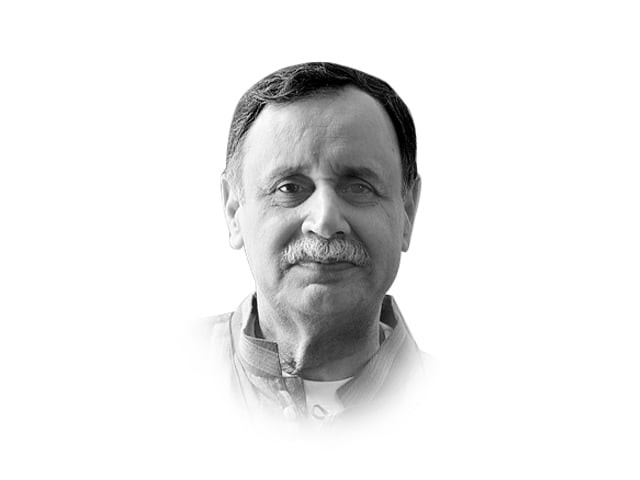Poverty-promoted child abuse
Poverty is highest form of violence that can be inflicted on human beings

Pakistan’s insanely swelling population has become completely incompatible with its dwindling financial and managerial resources. Deeply deluged in poverty and misery, millions of parents are willing to trade their children, often for a few thousand rupees per month. This vulnerability is happily capitalised by our exploitative and conscienceless elite, on the pretext of providing sustenance to a needy family.
Even in this limitless ocean of poverty, two communities – sanitation workers and private security guards – stand out for the distinctly cruel and violent treatment they receive. Deprived of even the minimum legal wage of Rs25,000 for an 8-hour shift, these two communities (more so the security guards) are invariably made to work for 12 hours a day with no weekly holiday, medical leave or EOBI. Poverty is indeed the highest form of violence that can be inflicted on human beings.
Poverty is hunger. Poverty is lack of shelter. Poverty is falling sick and not being able to see a doctor. Poverty is inability to send your child to a school. Poverty is living as a daily wager – one day at a time. Poverty is fear of a pension-less future. Poverty is forcing your child to become a domestic worker. Poverty is eight-year-old Zohra Shah, beaten to death for accidentally releasing a caged bird. Poverty is not being able to spend time with your children for your shift demands 12 hours a day for 30 days in a month.
The state and society thus carefully craft breeding grounds and opportunities that promote child abuse. Children who work as domestic or industrial labour are vulnerable to child abuse by adults. Children who are left unattended by parents are vulnerable to child abuse by domestic help, family members and neighbours. Unable to cater for boarding and lodging, children deposited in seminaries are vulnerable to rampant and chronic child abuse. While child abuse does not recognise any class barriers, it is poverty that adds fuel to the fire and a compelling magnitude of likelihood and helplessness to this phenomenon.
Nothing would explain the correlation between population, poverty and child abuse better than the news of a six-year-old girl raped by a domestic help in DHA Karachi, as reported in the newspapers of October 15, 2022. The innocent girl was raped by a 15-year-old boy who had been compelled by his parents to work as domestic help for a well-off family. The boy’s father is a highly underpaid security guard whose long 12 hours shift for 30 days a month leaves him financially, emotionally and physically exhausted. He has neither time nor food for his children. He is thus compelled to force them to work as domestic helpers in return of boarding, lodging and a few thousand rupees per month.
Pakistan’s disproportionately high number of child protection departments, authorities and commissions are essentially ceremonial and self-consuming in nature. They have not been able to create any functional or effective mechanism to prevent child abuse, to remove child beggars from streets, to release child domestic help from homes, to prevent under-age marriage of girls or to rescue thousands of “invisible” children who work as sanitary workers in full public view.
It may be best to rethink child abuse ab initio. Start with creating an effective population control programme. Raise the legal minimum wage to Rs40,000 per month for an 8-hour shift and ensure every citizen receives this amount. Ensure every citizen above the age of 18 is registered with EOBI and Social Security. Security guards must work for no more than 8 hours a day and be given medical leave and four weekly holidays. Unless we can come to grips with our runaway population and our massive poverty, the results of any child protection measures would be no different than expecting a fish to avoid getting wet while swimming in an ocean.














COMMENTS
Comments are moderated and generally will be posted if they are on-topic and not abusive.
For more information, please see our Comments FAQ